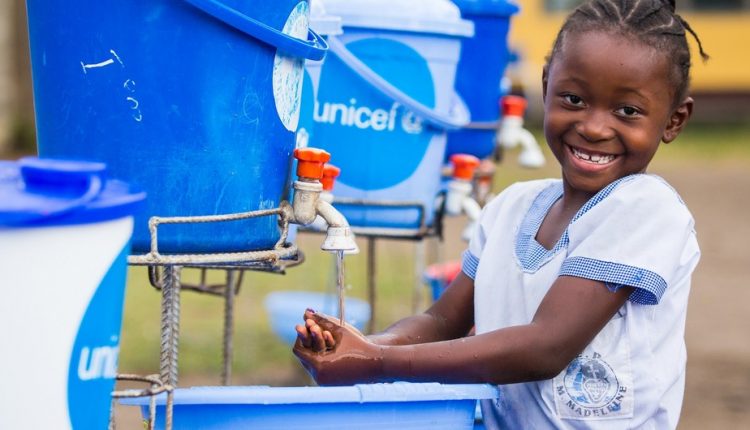Three billion people globally lack handwashing facilities at home: UNICEF
Although handwashing with soap is vital in the fight against infectious diseases, including COVID-19, billions of people around the world do not have ready access to a place to wash their hands, the UN Children’s Fund (UNICEF) has said.
According to new estimates from UNICEF, 40 per cent of the world’s population – or 3 billion people – do not have a handwashing facility with water and soap at home. The number is much higher in least developed countries, where nearly three-quarters of the population lack such facilities.
Kelly Ann Naylor, Associate Director of Water, Sanitation and Hygiene at UNICEF, said that it is “unacceptable” that the most vulnerable communities are unable to use the simplest of methods to protect themselves and their loved ones.
“The pandemic has highlighted the critical role of hand hygiene in disease prevention. It has also stressed a pre-existing problem for many: Handwashing with soap remains out of reach for millions of children where they’re born, live and learn.”
“We must take immediate action to make handwashing with soap accessible to everyone, everywhere – now and in the future,” she urged.
The situation is also alarming at schools: 43 per cent of schools globally (70 per cent in least developed countries) lack a handwashing facility with water and soap, affecting hundreds of millions of school-age children, according to the estimates.
► See also: Everything you need to know about washing your hands to protect against coronavirus
‘Hand Hygiene for All’
Against this backdrop, UNICEF, along with the UN World Health Organization launched the “Hand Hygiene for All” initiative to support the development of national roadmaps to accelerate and sustain progress towards making hand hygiene a mainstay in public health interventions.
This means rapidly improving access to handwashing facilities, water, soap and hand sanitizer in all settings, as well as promoting behavioural change interventions for optimal hand hygiene practices, said UNICEF.
The initiative brings together international, national, and local partners, to ensure affordable products and services are available and sustainable, especially in vulnerable and disadvantaged communities.
The estimates were released on Thursday, coinciding with Global Handwashing Day, which serves as a platform to raise awareness on the importance of handwashing with soap.

